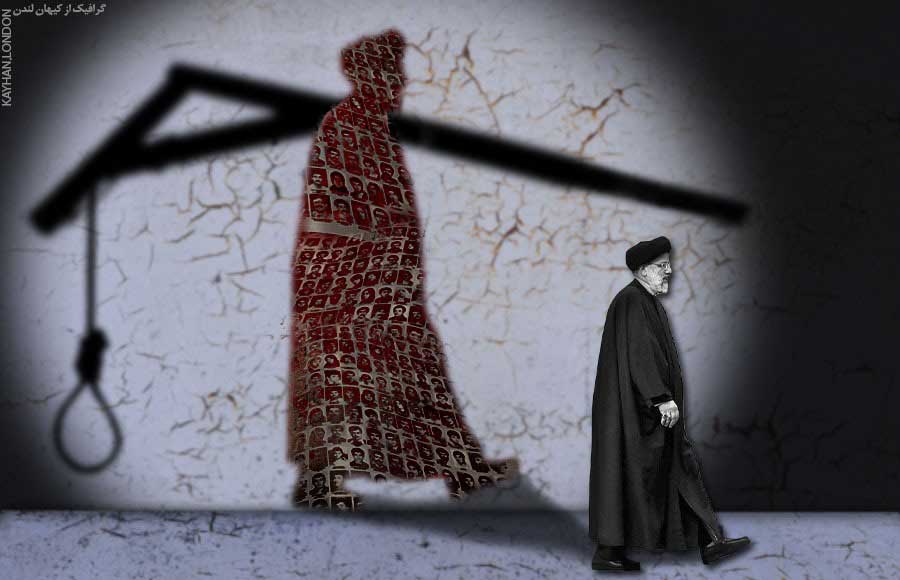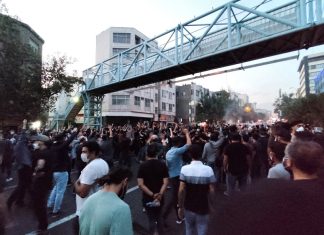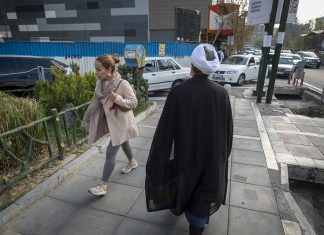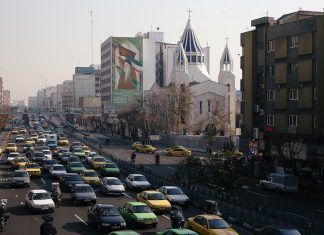By Ahmad Rafat
Iranian rapper Toomaj Salehi’s trial was held on Jan. 12 at branch102 of Shahin Shahr’s criminal court in the central province of Isfahan. A few hours before the start of the court proceedings, the Judiciary reversed its earlier decision to disqualify trial lawyer Roza Etemad-Ansari and allowed her to defend Mr. Salehi in court.
The court will reportedly issue its verdict sometime next week.
Shortly before his trial, Toomaj released his latest music rap video, titled Tanab-e Dar (“Hanging Rope,” or “Hanging Noose,”), in which he refutes the charges brought against him.
Hanging Rope is available on YouTube with English subtitles:
“Not my rap music, but you are the ones who should be on trial for mass killings of Khavaran [extrajudicial mass executions of political dissidents and prisoners in the 1980s], crimes committed in 1990 [attack on Tehran University], January 2018, and November 2019 [violent nationwide protests which resulted in many deaths, scores of injuries and arrests],” Toomaj says in the video.
Toomaj also tweeted: “I am not Jesus Christ, turning the other cheek after being slapped in the face. I will react with all my strength against the slightest attack.”
The chief justice at branch-102 of Shahin Shahr’s criminal court had previously disqualified defense lawyers Roza Etemad-Ansari and Amir Raisian, citing a curious clause to Article 48 of Iran’s Criminal Code of Procedure for Public and Revolutionary Courts, passed when the current Iranian President Ebrahim Raisi was the head of the Judiciary.
The clause states: “In crimes committed against national and international security, and in organized criminal activities — the punishment of which is subject to Article (302) of this law — in the preliminary stage of investigations, the litigants shall choose a lawyer or legal representatives from among the accredited attorneys approved by the head of the Judiciary. The head of the Judiciary releases the names of these lawyers.”
Authorities arrested Salehi after he published several rap music videos with political content, criticizing the Islamic Republic’s policies and its efforts to silence its critics, including “Normal” and Soorakh Moosh (“Rat Hole”), and Anar (“Pomegranate”).
Dozens of security officers reportedly raided Salehi’s house on Sept. 12 before arresting him and charging him with “insulting the leader” and “acting against the state.”
Following a social media outcry over his detention, Salehi was released on bail nine days later, pending a trial. He released his rap video “No to Capital Punishment” immediately after his release in a show of defiance.
Since publishing his music, Salehi has become the most famous Iranian rapper.
In the past few days, Salehi has posted several tweets about Baktash Abtin, a jailed Iranian poet, writer, and filmmaker who died in hospital on Jan. 8 from Covid-19. Mr. Abtin received outside medical care only after contracting coronavirus for the second time. Prison authorities transferred Abtin from the prison infirmary to a hospital too late, which caused his death.
Baktash Abtin’s death has sparked public outcry, prompting many people to accuse the Islamic Republic of “extrajudicial murder.”
Many imprisoned dissidents and rights activists in Evin Prison, the Great Tehran Penitentiary (Fashafoyeh), and Rajai Shahr Prison (Gohardasht Prison) released statements after the death of Baktash Abtin.
“In recent years, the inhumane Islamic Republic state has repeatedly used various methods to kill political prisoners, to intimidate and terrorize the public,” the statement by several prisoners at Fashafoyeh said. “By ignoring this incident, human rights organizations and international bodies enable the Islamic Republic’s oppressive and killing machine to continue its crimes with no fear of being punished by the international community. Using its propaganda apparatus, it justifies its crimes and continues to intimidate and terrorize.”
In their statement, several dissidents in Rajai Shahr Prison argued that Baktash Abtin’s death continued the state’s “serial killings of writers” policy in the past few years.
“We believe that the regime and its lackeys killed Baktash Abtin because they transferred him to the hospital when there was no hope of saving him,” the statement by several dissidents in Evin Prison asserted.
The crisis sparked by the tragic death of Baktash Abtin has affected various artistic and cultural bodies, including the House of Cinema, also known as the Alliance of Motion Picture Guilds.
In a letter to the board of directors of House of Cinema, some 300 people in the Iranian film industry described the board’s statement on the death of Abtin as “disgraceful.”
“House of Cinema has embarrassed us once again,” the letter said. “Instead of holding those in power accountable, you dance to their music.”
In its statement, House of Cinema mentioned nothing about Baktash Abtin’s imprisonment or developing Covid-19 while in jail, only that “despite extensive vaccination regime and a significant drop in the number of coronavirus infections, another member of House of Cinema lost his life to this mysterious illness.”
Following public outcry and a call for its board of directors to resign, House of Cinema released a second statement that further angered people in the film industry.
“It was tragic news. We all know what happened. It saddened us all,” the second statement said, again not mentioning that Abtin was in prison, and that authorities transferred him to the hospital after it was too late to save his life.






